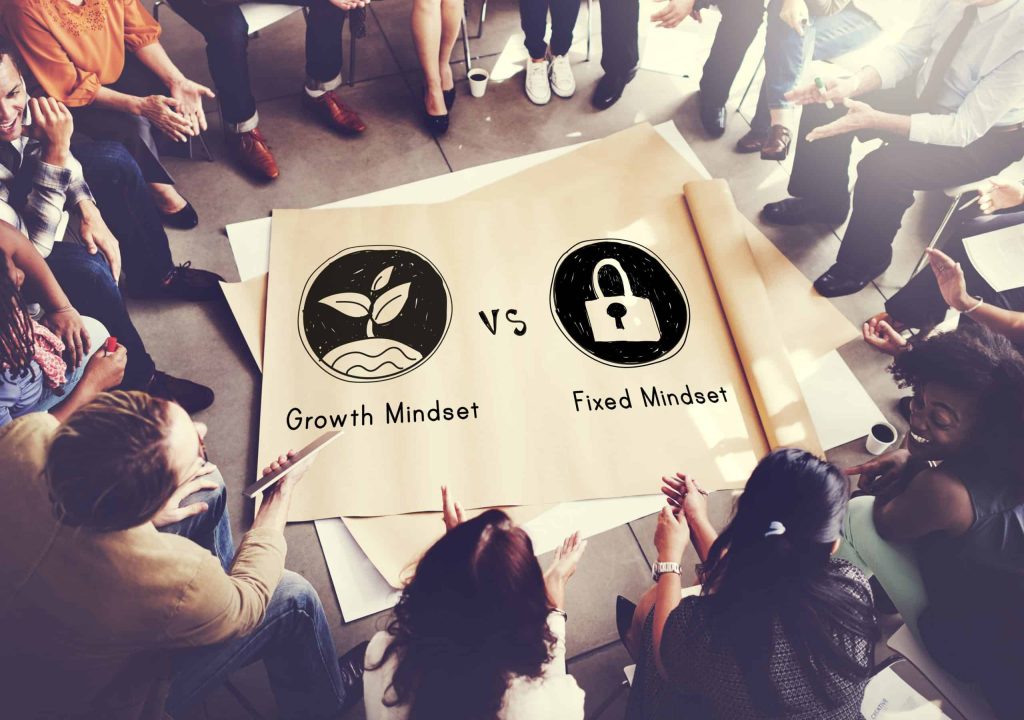The Importance of Reflective Journaling in Building a Growth Mindset in Nigerian Students

The Transformative Role of Reflective Journaling
In the quest for personal and academic development, one practice has proven to be invaluable: reflective journaling. This technique encourages students to engage deeply with their educational journeys, offering a pathway to develop a more robust growth mindset. For students in Nigeria, where academic pressures can be pervasive, the importance of this practice is particularly pronounced.
Reflective journaling creates a space for students to not only document their experiences but also to analyze them critically. This practice enables students to:
- Identify personal strengths and weaknesses. Journals serve as mirrors, reflecting areas where students excel as well as those requiring improvement. For example, a student struggling in mathematics might write about specific topics that challenge them, thus highlighting areas to focus on.
- Articulate thoughts and feelings about academic challenges. Through journaling, students can express their frustrations or triumphs related to schoolwork, whether it’s preparing for senior secondary exams like the WAEC or navigating university admission processes.
- Enhance self-awareness and critical thinking skills. The act of writing prompts students to engage in self-reflection, enabling them to assess their evolving identities as learners and individuals.
In Nigeria, where educational environments can be intensely competitive, the various benefits of reflective journaling become even more significant. By fostering a focus on the learning process, students are better equipped to:
- Transition from a fixed to a growth mindset. Embracing the belief that abilities can be developed through dedication and hard work can empower students to view challenges as opportunities.
- Embrace challenges and learn from failures. Instead of being discouraged by setbacks, students can reflect on their failures, drawing valuable lessons that prepare them for future endeavors.
- Develop resilience in the face of adversity. Consistent self-reflection encourages a proactive approach to personal challenges, promoting mental toughness that benefits students both academically and personally.
Moreover, the essence of reflective journaling aligns with local cultural values that emphasize community and introspection. In a nation where oral traditions are strong, journaling can also enhance dialogues among peers and family, enriching the overall educational experience. For instance, discussing journal entries with family may lead to new insights and solutions, reinforcing ties within the family unit.
As educators and students in Nigeria explore the multifaceted benefits of reflective journaling, it becomes clear that this practice is more than just an academic tool; it is a vital strategy for fostering lifelong learning and personal development. By integrating journaling into their routines, students can cultivate habits of reflection that will serve them well beyond the classroom, shaping them into adaptable, thoughtful individuals in a rapidly changing world.

LEARN MORE: This related article may interest you
Unpacking the Benefits of Reflective Journaling for Nigerian Students
Reflective journaling serves as a transformative educational strategy that encourages Nigerian students to embrace a growth mindset, a belief that intelligence and abilities are not fixed but can evolve through effort and learning. This powerful tool encourages students to engage in deep self-reflection, ultimately leading them to recognize and develop their potential. But how exactly does this practice help students in Nigeria navigate their complex educational landscape?
First and foremost, reflective journaling empowers students by promoting a culture of self-reflection. In a country where educational success often hinges on rigorous examinations and intense competition, students can find themselves overwhelmed by the pressure to excel. Through journaling, they create personal spaces where they can sort through their thoughts and emotions related to these pressures. This practice becomes particularly vital during crucial periods, such as preparing for the West African Senior School Certificate Examination (WASSCE), when stress levels peak.
Furthermore, reflective journaling encourages students to establish specific goals, both academically and personally. By documenting their aspirations and the steps they take towards achieving them, students can track their progress and adjust their strategies as needed. This goal-oriented approach fosters a sense of ownership over their learning journey. For instance:
- Students can set academic goals by identifying topics they find challenging and committing to spending additional time on them.
- They can facilitate personal growth by noting experiences that enhance their understanding of their identities and capabilities, ultimately leading to improved self-confidence.
- By reflecting on past failures, they can glean important lessons that steer them toward better decision-making in the future.
Moreover, engaging in reflective journaling cultivates a habit of critical thinking. As students write about their experiences, they learn to analyze situations objectively, often leading to deeper insights. This process not only promotes academic understanding but also nurtures essential life skills that are crucial in today’s multifaceted society. A student who reflects on a failed examination can identify study patterns that didn’t work, allowing them to adjust their approach for future success.
Additionally, the communal aspects of journaling in the Nigerian context cannot be overlooked. Family and peer interactions offer valuable opportunities for dialogue stemming from students’ reflections. Discussing journal entries with a parent or sibling can prompt enlightening conversations, bridging generational gaps and enriching the educational experience. For instance, a student may write about a particularly challenging topic in mathematics; by sharing this experience, they can seek guidance and advice from an elder, enhancing their understanding and problem-solving skills.
In summary, the practice of reflective journaling is a powerful catalyst for nurturing a growth mindset in Nigerian students. By fostering self-reflection, goal-setting, and critical thinking, journaling aids students in overcoming academic challenges and enables them to embrace learning as an ongoing journey rather than a destination. As the educational landscape in Nigeria continues to evolve, integrating reflective journaling into academic routines can significantly shape students’ futures, setting them on a path toward lifelong learning and personal development.
Reflective journaling serves as a powerful tool for Nigerian students to cultivate a growth mindset, encouraging them to embrace challenges and view failures as opportunities for learning. This process allows them to articulate their thoughts and feelings regarding their experiences in a structured manner, which can lead to deeper self-awareness. Through consistent journaling, students can track their progress and reflect on both their successes and areas needing improvement. This active engagement reinforces their belief in the malleability of their intelligence and capabilities.Moreover, reflecting on personal experiences helps students to identify their emotional responses to various situations. It provides a safe space for them to process any setbacks they encounter in their academic journeys. For instance, a student who receives a poor grade on an exam can use their journal to dissect what went wrong, what strategies they can adopt moving forward, and how to avoid similar pitfalls in the future. This not only fosters resilience but also assists in building psychological tools necessary for personal and academic growth.Implementing this practice within the Nigerian education system can further enhance students’ cognitive abilities and emotional intelligence. Teachers can encourage reflective journaling by integrating it into their curricula, prompting students to write about their learning experiences, classroom dynamics, and self-development. This approach not only transforms how students view challenges but also instills essential life skills, such as critical thinking and initiative, all of which are critical for success in today’s fast-paced environment.In essence, reflective journaling acts as a bridge between academic performance and emotional health, paving the way for Nigerian students to adopt a growth mindset. As they engage in continuous learning and self-evaluation, they become better equipped to face challenges head-on, creating a generation that values persistence and innovation in the learning process.
LEARN MORE: This related article may interest you
Enhancing Emotional Intelligence through Reflective Journaling
Another significant benefit of reflective journaling lies in its ability to enhance emotional intelligence, a skill set increasingly recognized as crucial in both academic and personal spheres. For Nigerian students, whose educational environment often emphasizes rote memorization and standardized testing, developing emotional intelligence through reflective practices can create a more holistic learning experience. By documenting emotional responses to various academic or social situations, students can cultivate awareness and empathy, leading to a more nuanced understanding of themselves and their interactions with others.
Consider a student who faces repeated challenges in group projects. Through journaling, they can articulate feelings of frustration or inadequacy, prompting them to explore the root causes of these emotions. Is it a lack of collaboration from peers? Is it their own struggle with assertiveness? As they write down their reflections, they may gradually uncover patterns in their emotional responses, equipping them with the tools to communicate more effectively and build stronger interpersonal relationships. This level of self-awareness is invaluable in the Nigerian context, where teamwork and social cohesion are often paramount for success in both academic and professional settings.
Moreover, reflective journaling encourages students to engage in mindfulness practices, allowing them to cultivate gratitude and resilience. For Nigerian students navigating the complexities of their environment—including economic challenges and societal expectations—this practice can offer comfort and guidance. Journals can serve as a sanctuary where students can document small wins, appreciate their progress, and reflect on the lessons learned from failures. By recognizing their growth, students learn to shift their perspective from a fixed mindset to one that embraces change and challenges. For example:
- Students might note daily gratitudes, thus fostering a sense of positivity that can effortlessly translate into their academic performance and interpersonal relationships.
- Journaling about stressors can help them pinpoint specific triggers and explore healthy coping mechanisms, such as deep breathing techniques or seeking mentorship.
- They can also reflect on their journey toward overcoming obstacles, thus solidifying their belief in their ability to adapt and thrive.
In Nigerian classrooms, where the teacher-student dynamic can sometimes limit open communication, reflective journaling also creates a private space for expressing thoughts that students may feel uncomfortable voicing openly. This becomes particularly important in a culture where deference to authority figures can stifle individual expression. The act of writing allows students to clarify their ideas and feelings without the immediate pressure of feedback, providing an opportunity to engage with their thoughts fully.
The incorporation of digital platforms into the practice of reflective journaling also appeals to the tech-savvy youth of Nigeria. Mobile apps and online communities can serve as virtual journaling spaces, enabling students to share experiences and reflections while connecting with peers across the country. This fosters a sense of belonging among students who might otherwise feel isolated in their educational challenges. New research shows that digital reflective practices not only enhance engagement but also encourage collaborative learning and storytelling among students, bridging cultural and geographic divides.
Ultimately, the role of reflective journaling continues to extend beyond mere documentation of thoughts and experiences; it becomes a comprehensive tool for enhancing emotional intelligence, embracing mindfulness, and promoting resilience in Nigerian students. In a landscape where building a growth mindset is essential for personal achievement and societal development, reflective journaling emerges as a vital practice. By encouraging students to navigate their emotional landscapes and embrace their journeys, it empowers them to become more adaptable, self-aware, and ultimately, successful individuals.
RECOMMENDED: Check out this similar article
Conclusion: Embracing Growth through Reflective Journaling
In an ever-evolving educational landscape, the role of reflective journaling cannot be overstated, particularly in the context of Nigerian students who strive to develop a growth mindset. By engaging in reflective practices, students do not merely document their academic experiences; they embark on a transformative journey of self-discovery and emotional growth. This practice fosters critical skills such as emotional intelligence, resilience, and self-awareness, enabling students to face academic challenges with a renewed sense of purpose.
The unique challenges faced by Nigerian students, from socio-economic hurdles to a competitive academic environment, necessitate a proactive approach to personal development. Reflective journaling acts as a powerful tool in this regard, offering a safe space for students to process their emotions and thoughts while cultivating a sense of belonging through shared experiences. By utilizing both traditional and digital journaling methods, students can bridge gaps in communication, enhance collaboration, and learn from one another’s diverse perspectives.
As we consider the implications of reflective journaling, it is clear that by fostering a growth mindset, students are not just preparing for academic success but are also equipping themselves to navigate the complexities of life beyond school. The lessons learned through journaling can inspire them to embrace challenges, celebrate progress, and remain adaptable in an ever-changing world. Therefore, it is imperative for educators, parents, and policymakers to champion the integration of reflective journaling into the academic experience, ensuring that Nigerian students are empowered to become the resilient leaders of tomorrow.


